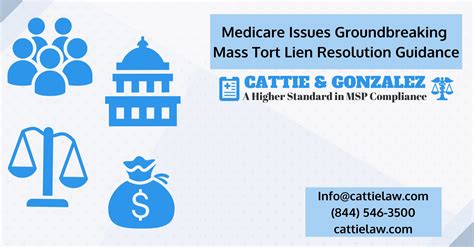Shorten the Wait: Medicare Lien Resolution Strategies
Navigating the complexities of Medicare liens can be a frustrating and time-consuming process. These liens, placed on personal injury settlements or awards, can significantly delay your access to much-needed funds after an accident. Understanding how Medicare liens work and employing effective resolution strategies is crucial to shortening the wait and securing your rightful compensation. This article will delve into proven strategies to expedite the lien resolution process and help you reclaim your funds sooner.
What is a Medicare Lien?
A Medicare lien arises when Medicare pays for your medical treatment related to injuries sustained in an accident where someone else is at fault. Medicare then asserts a right to recover these payments from any subsequent settlement or judgment you receive. This is because Medicare aims to recoup its expenditures. The amount of the lien reflects the total Medicare payments made for your treatment. Failure to address the lien correctly can delay or even prevent the release of your settlement funds.
How to Resolve a Medicare Lien: Effective Strategies
Resolving a Medicare lien requires careful planning and strategic action. Here are several strategies to expedite the process:
1. Understanding the Medicare Secondary Payer (MSP) Recovery Process
The process starts with understanding the Medicare Secondary Payer (MSP) rules. This complex set of regulations governs how Medicare interacts with other insurance providers and individuals involved in accidents resulting in injury. Familiarizing yourself with these rules is the first step towards a smoother resolution. A good understanding will inform your negotiation strategies and help you avoid potential pitfalls.
2. Prompt Notification is Key: Reporting Your Settlement
Immediately notify Medicare of your settlement or lawsuit. Failure to do so can lead to significant delays and complications. You are legally obligated to inform Medicare about the potential for recovery. This notification allows Medicare to assess its claim and begin the process of negotiation. The sooner you notify them, the sooner the process can start.
3. Negotiating a Settlement with Medicare: A Collaborative Approach
Many liens are resolvable through negotiation. You or your attorney can work directly with Medicare to negotiate a reduced amount. This often involves providing detailed documentation outlining the expenses and losses incurred due to the accident. A collaborative approach can often lead to a more favorable outcome than a protracted legal battle.
4. Utilizing a Medicare Set-Aside (MSA): Protecting Your Future Healthcare Needs
For significant injuries requiring ongoing care, a Medicare Set-Aside (MSA) can be a valuable tool. An MSA is a dedicated fund set aside to cover your future medical expenses related to the accident. By creating an MSA, you demonstrate to Medicare that your future medical costs are addressed, potentially leading to a reduction or even release of the lien.
5. Working with an Experienced Attorney: Professional Guidance is Crucial
Navigating Medicare lien resolution independently can be challenging. An experienced personal injury attorney possesses the expertise to handle the complexities of Medicare's MSP rules and negotiate effectively with Medicare. They understand the legal nuances and can significantly expedite the process.
6. Complete and Accurate Documentation: Supporting Your Claim
Accurate and complete documentation is vital throughout the process. This includes medical records, bills, settlement documents, and any other relevant paperwork. Providing thorough documentation streamlines the process and reduces the risk of delays caused by information gaps.
Frequently Asked Questions (FAQ)
How long does it take to resolve a Medicare lien?
The time it takes to resolve a Medicare lien varies significantly depending on several factors, including the complexity of the case, the amount of the lien, and the effectiveness of your chosen resolution strategy. While some cases might resolve within a few months, others could take much longer.
Can I resolve a Medicare lien myself, or do I need a lawyer?
While it's possible to attempt a resolution yourself, the process is often complex and time-consuming. A knowledgeable personal injury lawyer brings expertise in Medicare regulations and negotiating with the government, making it significantly more efficient and effective.
What happens if I don't resolve the Medicare lien?
Failure to resolve a Medicare lien could significantly delay or prevent the release of your settlement funds. Medicare could pursue legal action to recover the payments they made for your treatment.
By understanding the process and employing these strategies, you can significantly shorten the wait for your settlement funds and navigate the complexities of Medicare lien resolution more efficiently. Remember, proactive communication, thorough documentation, and seeking professional legal guidance are crucial to achieving a positive outcome.

